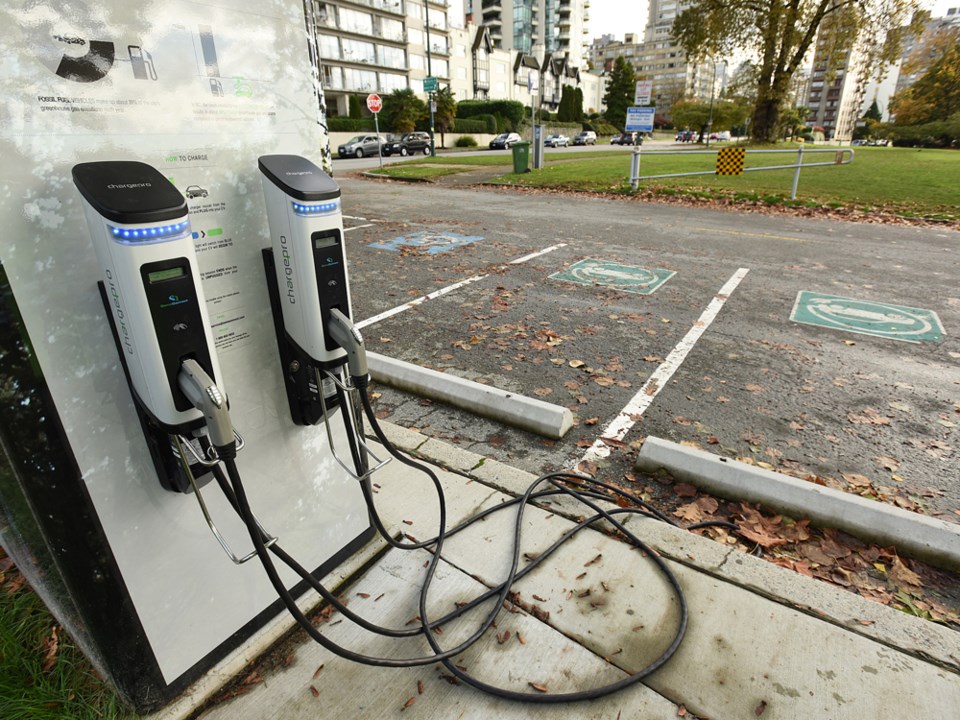All parking stalls in new, multi-residential buildings will have to be electric-vehicle ready after a council voted unanimously on Wednesday in favour of staff recommendations designed to expand electric vehicle charging infrastructure in Vancouver.
The only exception is for visitor parking.
Previous regulations required 20 per cent of stalls to be electric-vehicle ready. The cost of adding charging infrastructure during construction is pegged at $300 per stall compared to an estimated $3,300 for a later retrofit.
Since 2014, existing requirements have resulted in 20,000 electric vehicle-ready stalls in buildings.
Carr called the move from a 20 to a 100 per cent requirement the “smart way to go” to tackle climate change and reduce greenhouse gas emissions given 42 per cent of emissions in Vancouver are related to transportation. Carr said one of the barriers to people choosing an electric vehicle is the lack of charging stations.
“I would have bought an electric vehicle when I came into an inheritance but I couldn’t charge it,” she said.
“I think the realization for most people is that [electric vehicles are] only getting to be a smarter and smarter investment. Let alone the whole idea of climate change, and how you can feel positive about what you’re doing to counter that, [it’s] the fact that your fuel costs are minimal compared to a gas car or even a hybrid and the technology is only improving.”
Ian Neville, climate policy analyst in the city’s sustainability group, told council the cost for charging at residential electricity rates is approximately one sixth to one eighth of the cost of gasoline right now. Electric vehicles also require very little maintenance because they only have about a dozen moving parts.
“You’re basically looking at tires and wiper blades and wiper fluid and that’s the extent of it,” he said.
Neville added that an increase in charging stations also benefits utilities.
“By having home charging distributed throughout the city, it reduces peak loads on the B.C. Hydro grid, which is easier for them to manage,” he said.
Mayor Gregor Robertson said he expects to see a massive shift to electric vehicles in coming years and that the city will be well positioned when it happens.
“This is a great opportunity to reduce our pollution dramatically in the city and to ultimately save money,” he said.
According to the city, there’s been a 70 per cent growth in sales of electric vehicles every year in Vancouver since 2011 — the first year mass market electric vehicles were available.
The city also plans to develop a preferential parking policy for zero-emission vehicles and add more DC fast-charging points across Vancouver, which can provide up to 200 kilometres of range in an hour. Ultimately, the city’s goal is to have all residents within a 10-minute drive of a DC fast-charging station by 2021.
Plans are in place to install one at Science World, on East 44th at Fraser Street, along Richards Street and to expand what’s available at Empire Fields.
Currently, there are more than 250 electric vehicle charging stations in Vancouver; the city owns and operates 72 of them.
noconnor@vancourier.com



